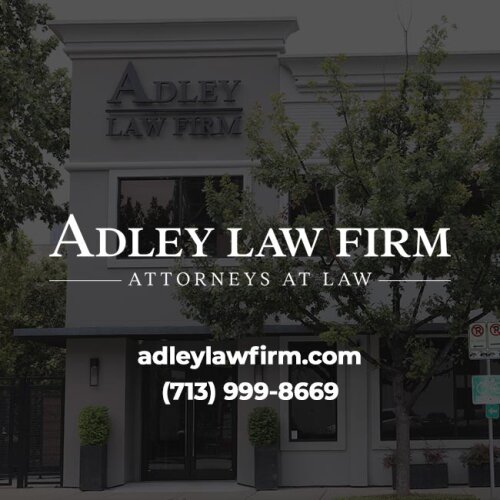Best Insurance Defense Lawyers in Houston
Share your needs with us, get contacted by law firms.
Free. Takes 2 min.
List of the best lawyers in Houston, United States
About Insurance Defense Law in Houston, United States
Insurance defense law in Houston encompasses a wide range of matters pertaining to insurance policies and claims. It covers auto insurance, health insurance, homeowners insurance, property insurance and malpractice insurance among others. It involves defending insurance companies when a claim is made against their insured, or helping individuals understand their rights under an insurance policy.
Why You May Need a Lawyer
You may need a lawyer if a claim is made against you by an insurer. If you feel you're being unjustly denied insurance coverage or compensation, having a lawyer on your side can be invaluable. For individuals, it might be challenging to navigate through the insurance language and policy details, hence the importance of seeking legal help. Lawyers in this field can also help insurance companies assess the legitimacy of an insurance claim and guide them throughout the litigation process.
Local Laws Overview
Under Texas law, all insurance companies are required to act in good faith when handling insurance claims. This means they must thoroughly investigate, process and settle claims promptly and fairly. In addition, there are strict regulations in place with regard to the timing of response and payment of benefits. Violation of these laws can result in penalties for the insurance company. Owing to the vastness of insurance law, a deep understanding of local regulations like the Texas Insurance Code and case precedents is crucial.
Frequently Asked Questions
1. What is a bad faith insurance claim?
A bad faith insurance claim arises when an insurance company fails to meet its legal obligations towards injured victims, or does not live up to good faith and fair dealing requirements stipulated by law.
2. How does a lawyer help in an insurance defense case?
Lawyers help by evaluating the terms of an insurance policy, investigating and analyzing the facts and evidence related to the claim, formulating effective strategies, and representing clients in court proceedings or settlement negotiations.
3. When should I hire an insurance defense lawyer?
It is advisable to hire an insurance defense lawyer as soon as a claim is lodged against you. If an insurer approaches you for a discussion, it's often a good time to contact an attorney.
4. How is the legal fee determined?
Typically, legal fees depend on the complexity of the case, the length of time it may take to resolve, and the lawyer's expertise. It could be charged either on an hourly basis, a flat fee or a contingency basis.
5. What are the common types of insurance defense cases?
The common types include bodily injury claims, property damage claims, bad faith insurance claims, and professional liability cases, among others.
Additional Resources
Local resources that can be of great help include the Houston Bar Association, the Texas Department of Insurance, and the American Bar Association's guide to insurance defense. These organizations provide valuable information and can be a starting point for understanding your rights and obligations under your insurance policy.
Next Steps
If you are in need of legal assistance regarding insurance defense, the best course of action would be to reach out to a reputable insurance defense attorney. You can use online directories or recommendations from the Houston Bar Association to identify suitable legal professionals. Remember to prepare all relevant information such as insurance policy documents, communication with the insurer, and evidence that could be useful to your case.
Lawzana helps you find the best lawyers and law firms in Houston through a curated and pre-screened list of qualified legal professionals. Our platform offers rankings and detailed profiles of attorneys and law firms, allowing you to compare based on practice areas, including Insurance Defense, experience, and client feedback.
Each profile includes a description of the firm's areas of practice, client reviews, team members and partners, year of establishment, spoken languages, office locations, contact information, social media presence, and any published articles or resources. Most firms on our platform speak English and are experienced in both local and international legal matters.
Get a quote from top-rated law firms in Houston, United States — quickly, securely, and without unnecessary hassle.
Disclaimer:
The information provided on this page is for general informational purposes only and does not constitute legal advice. While we strive to ensure the accuracy and relevance of the content, legal information may change over time, and interpretations of the law can vary. You should always consult with a qualified legal professional for advice specific to your situation.
We disclaim all liability for actions taken or not taken based on the content of this page. If you believe any information is incorrect or outdated, please contact us, and we will review and update it where appropriate.















